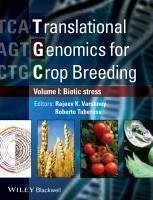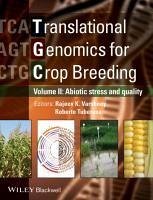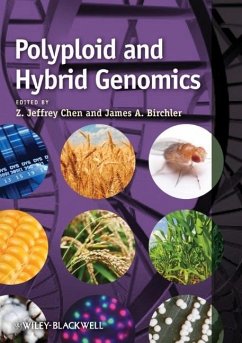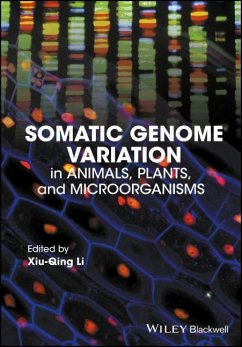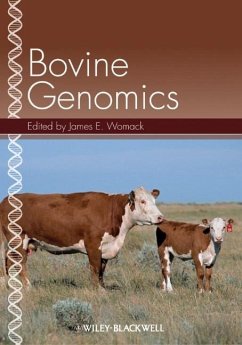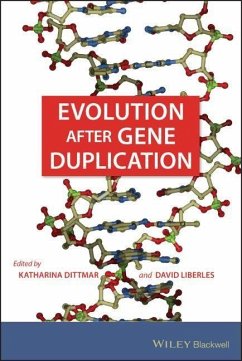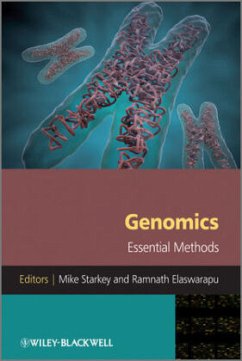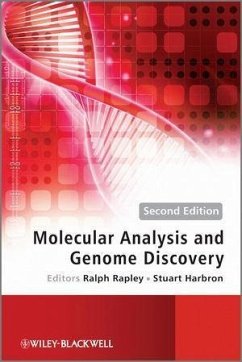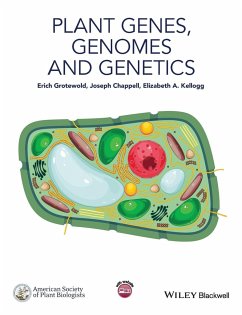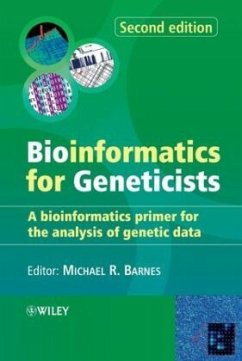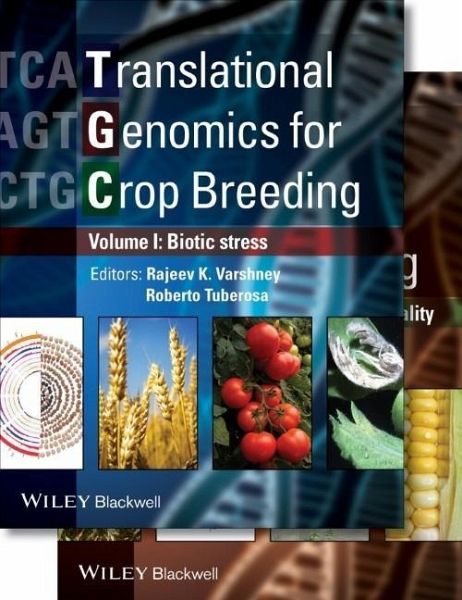
Translational Genomics for Crop Breeding, 2 Volume Set
Versandkostenfrei!
Versandfertig in über 4 Wochen
372,99 €
inkl. MwSt.

PAYBACK Punkte
186 °P sammeln!
The Genomics Applications in Crop Improvement two volume setbrings together a diverse field of international experts in plantbreeding genomics to share their experiences in the field, fromsuccess stories to lessons learnt.In recent years advances in genetics and genomics have greatlyenhanced our understanding of the structural and functional aspectsof plant genomes. Several novel genetic and genomics approachessuch as association genetics, advanced back-cross QTL analysis,allele mining, comparative and functional genomics,transcriptomics, proteomics, etc. offer unprecedented opportunitiesto ex...
The Genomics Applications in Crop Improvement two volume setbrings together a diverse field of international experts in plantbreeding genomics to share their experiences in the field, fromsuccess stories to lessons learnt.
In recent years advances in genetics and genomics have greatlyenhanced our understanding of the structural and functional aspectsof plant genomes. Several novel genetic and genomics approachessuch as association genetics, advanced back-cross QTL analysis,allele mining, comparative and functional genomics,transcriptomics, proteomics, etc. offer unprecedented opportunitiesto examine crop genetic variation and utilize this variability forbreeding purposes. Enhancing the prediction of the phenotype from agenotype using genomics tools is referred to as genomics-assistedbreeding . To date, genomics-assisted breeding has shown itspotential for crop improvement in several crops, however thesesuccesses have been largely restricted to temperate cereal andlegume crops, and others such as Eucalyptus, sugarcane, tomato andother vegetables crops. Moreover, while success stories areavailable for improving resistance to biotic stresses, only a fewexamples are available on development of superior lines for abioticstresses. These volumes will allow researchers the tools tobegin to apply these technologies more broadly and will hopefullylead to lasting improvements in a wide variety of economicallyimportant crops.
Volume One, Biotic Stress , focuses on genomic-assistedadvances for improving economically important crops against bioticstressors, such as viruses, fungi, nematodes, and bacteria. Lookingat key advances in crops such as rice, barley, wheat, and potatoamongst others.
Volume Two, Abiotic Stress, Quality and YieldImprovement , focuses on advances improving crop resistance toabiotic stresses such as extreme heat, drought, flooding as well asadvances made in quality and yield improvement. Chapters examineadvances in such key crops as rice, maize, and sugarcane, amongothers.
Two volumes covering important topics in crop genomics andapplying that
information to breeding improved varieties of economicallyimportant crops
Volumes cover improving resistance to abiotic and bioticstressors as well as breeding
efforts to improve yield and quality
Includes chapters on current challenges for plant breeders suchas fusarium disease in wheat and cyst nematodes insoybean crops
Organized by crop, with chapters covering a variety of topicsfor each including disease resistance, drought tolerance, salinitytolerance and overall improvement of yield
Written by an international team of experts
This book is intended for crop science researchers, plantbiologists, geneticists, physiologists, cellular and molecularbiologists, and advanced students in related fields will also findthis set useful.
In recent years advances in genetics and genomics have greatlyenhanced our understanding of the structural and functional aspectsof plant genomes. Several novel genetic and genomics approachessuch as association genetics, advanced back-cross QTL analysis,allele mining, comparative and functional genomics,transcriptomics, proteomics, etc. offer unprecedented opportunitiesto examine crop genetic variation and utilize this variability forbreeding purposes. Enhancing the prediction of the phenotype from agenotype using genomics tools is referred to as genomics-assistedbreeding . To date, genomics-assisted breeding has shown itspotential for crop improvement in several crops, however thesesuccesses have been largely restricted to temperate cereal andlegume crops, and others such as Eucalyptus, sugarcane, tomato andother vegetables crops. Moreover, while success stories areavailable for improving resistance to biotic stresses, only a fewexamples are available on development of superior lines for abioticstresses. These volumes will allow researchers the tools tobegin to apply these technologies more broadly and will hopefullylead to lasting improvements in a wide variety of economicallyimportant crops.
Volume One, Biotic Stress , focuses on genomic-assistedadvances for improving economically important crops against bioticstressors, such as viruses, fungi, nematodes, and bacteria. Lookingat key advances in crops such as rice, barley, wheat, and potatoamongst others.
Volume Two, Abiotic Stress, Quality and YieldImprovement , focuses on advances improving crop resistance toabiotic stresses such as extreme heat, drought, flooding as well asadvances made in quality and yield improvement. Chapters examineadvances in such key crops as rice, maize, and sugarcane, amongothers.
Two volumes covering important topics in crop genomics andapplying that
information to breeding improved varieties of economicallyimportant crops
Volumes cover improving resistance to abiotic and bioticstressors as well as breeding
efforts to improve yield and quality
Includes chapters on current challenges for plant breeders suchas fusarium disease in wheat and cyst nematodes insoybean crops
Organized by crop, with chapters covering a variety of topicsfor each including disease resistance, drought tolerance, salinitytolerance and overall improvement of yield
Written by an international team of experts
This book is intended for crop science researchers, plantbiologists, geneticists, physiologists, cellular and molecularbiologists, and advanced students in related fields will also findthis set useful.



